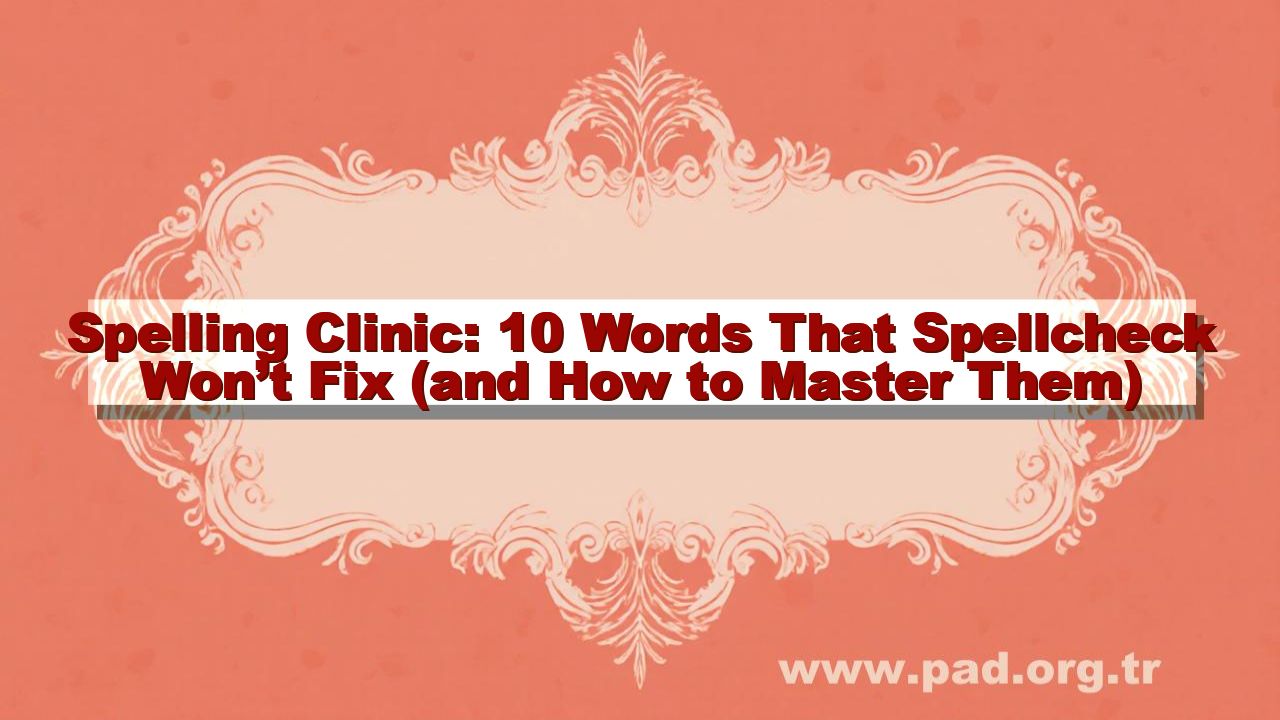Spellcheck is an invaluable tool, but it’s blind to context. It can’t tell the difference between a word that’s spelled correctly but used incorrectly (a homophone or homonym). These errors are sneaky and completely undermine your credibility. Mastering these tricky words is essential for clear, professional writing. Here are 10 pairs that often slip past the automatic checker and how to fix them.
The Sneaky 10: Homophone and Homonym Traps
These words sound identical, meaning spellcheck flags them as correct even when they are semantically wrong for the sentence.
- Principle vs. Principal 🏛️
- Principle: Always a noun meaning a fundamental truth, law, or belief. (Example: She lives by her ethical principles.)
- Principal: Can be a noun (the head of a school or an original sum of money) or an adjective (most important). (Example: The principal decided the school’s principal policy.)
- Than vs. Then
- Than: Used for comparisons. (Example: My car is older than yours.)
- Then: Used to indicate time or sequence. (Example: We finished the work, and then we went home.)
- Compliment vs. Complement 🤝
- Compliment: A remark expressing praise or admiration. (Example: He complimented my new haircut.)
- Complement: Something that completes or brings to perfection. (Example: The wine complements the main course.)
- Accept vs. Except
- Accept: A verb meaning to receive, agree to, or take on. (Example: I accept your offer.)
- Except: A preposition meaning excluding or apart from. (Example: Everyone went except me.)
- Site vs. Sight vs. Cite 👀
- Site: A place or location (like a construction site or website).
- Sight: The ability to see or something worth seeing.
- Cite: A verb meaning to quote or refer to (often in academic writing).
- Loose vs. Lose 📉
- Loose: An adjective meaning not tight or not secured (often rhymes with goose). (Example: The knot was loose.)
- Lose: A verb meaning to suffer a loss, fail to keep, or misplace (often rhymes with choose). (Example: Don’t lose your keys.)
- Elicit vs. Illicit ⚖️
- Elicit: A verb meaning to draw forth or obtain (a response, answer, or fact). (Example: Her question elicited a long response.)
- Illicit: An adjective meaning forbidden by law, rules, or custom; illegal. (Example: They were involved in illicit trading.)
- Adverse vs. Averse
- Adverse: An adjective meaning unfavorable, harmful, or preventing success. (Example: The adverse weather delayed the flight.)
- Averse: An adjective meaning having a strong dislike or opposition to. Usually followed by to. (Example: I am averse to cold weather.)
- Insure vs. Ensure vs. Assure ✅
- Insure: To guarantee against loss (usually financial, like an insurance policy).
- Ensure: To make certain that something will occur.
- Assure: To state positively or make someone confident (usually dealing with people). (Example: I assure you the policy ensures coverage, which is insured by the company.)
- Discreet vs. Discrete
- Discreet: Careful and judicious in one’s conduct or speech, especially in keeping silence. (Example: The doctor was discreet about the patient’s information.)
- Discrete: Separate and distinct (used often in mathematics and science). (Example: The system is composed of discrete modules.)
Mastering the Homophone Test
To train yourself to spot these errors before spellcheck does, try to create simple mnemonic devices or quick mental tests for the most common offenders:
- For Principle/Principal: Remember the principal of a school is your pal. The other word, principle, ends in le for rule.
- For Than/Then: Than is used for comparison (has an A). Then is used for time (has an E).
- For Loose/Lose: If it has two O’s (loose), it’s too loose.


